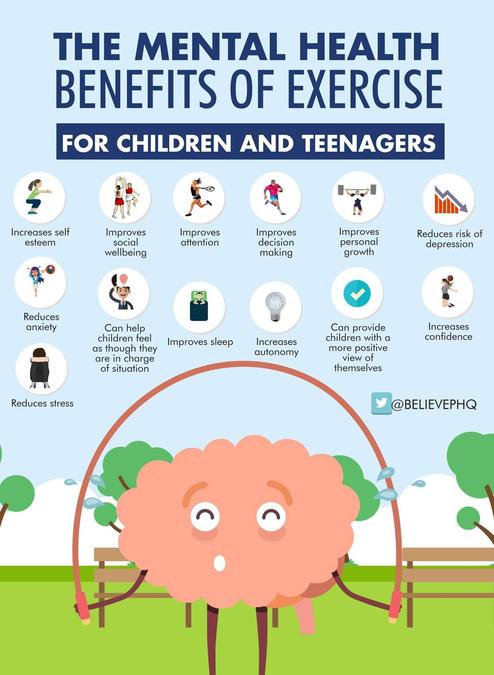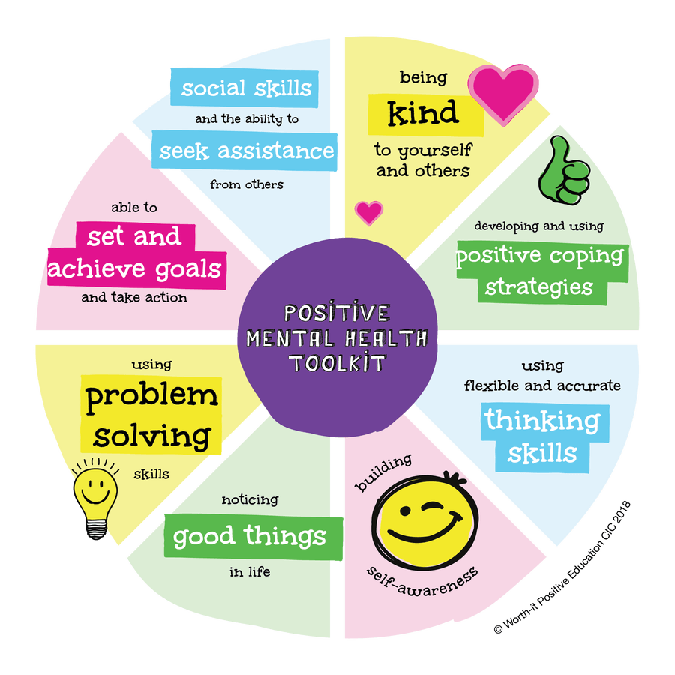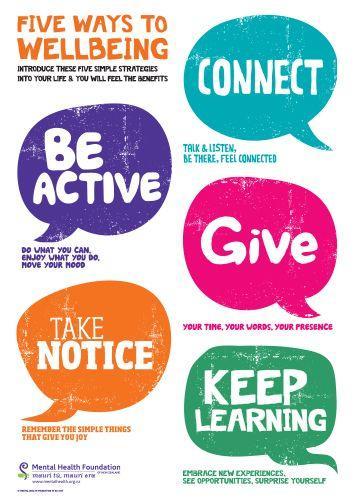Mental Health & Wellbeing
Our Shared Vision
At Mendip Green, we are committed to supporting the positive mental health and wellbeing of our whole community of children, staff, parents and carers.
Our ethos is supportive, caring and respectful. We understand how important positive mental health and wellbeing is to our lives. We recognise that children’s mental health is a vital factor in their overall wellbeing and how it can affect their learning and achievements. We know that anyone in our community may need additional emotional support to cope with life’s challenges so we encourage children to be open and we support all children to have their voice heard.
Our culture of nurturing children and building resilience to mental health problems means our school is a safe place where:
- Every child feels valued;

- Every child has a sense of belonging;
- Every child feels able to talk openly with trusted members of staff about their problems;
- Positive mental health is promoted;
- Bullying is not tolerated.
We recognise the importance of supporting positive mental health and wellbeing to the whole school community.
At Mendip Green positive mental health is everybody’s responsibility.
What is mental health and wellbeing?
There are many ways to define wellbeing but the definition of ‘wellbeing’ as referenced in the World Health Organisation definition of mental health is widely accepted: “Mental health is defined as a state of wellbeing in which every individual realises his or her own potential, can cope with the normal stresses of life, can work productively and fruitfully, and is able to make a contribution to her or his community.”
Young Minds define mental health as: “The strength and capacity of our minds to grow and develop, to be able to overcome difficulties and challenges, and make the most of our abilities and opportunities.”
We recognise that mental health and wellbeing is not simply the absence of mental health problems. We know building children’s confidence and self-esteem in a safe environment is vital to positive mental health and successful learning outcomes.
Why is mental health and wellbeing important?
The Department for Education (DfE) recognises that “in order to help their children succeed, schools have a role to play in supporting them to be resilient and mentally healthy”. Our School is a place for children to experience a nurturing and supportive environment. We support the children to develop their self-esteem and build resilience. We understand all children and their families go through ups and downs, and some face significant life events.
Over the course of their education, children spend over 7,800 hours at school. With such a huge amount of their childhood spent in the classroom, our school provides an ideal environment for promoting good emotional wellbeing and identifying early behaviour changes and signs of mental distress. The social and emotional skills, knowledge and behaviours that young people learn in the classroom can help them to build resilience and set the pattern for how they will manage their mental health throughout their lives.
Emotional wellbeing is a clear indicator of academic achievement, success and satisfaction in later life. Evidence shows that mental health and wellbeing programmes in schools, can lead to significant improvements in children’s mental health, and social and emotional skills. Wellbeing provision in schools can also lead to reductions in classroom misbehaviour and bullying.
Mental health and wellbeing at Mendip Green
We recognise that mental health and wellbeing is not simply the absence of mental health problems. We know building children’s confidence and self-esteem in a safe environment is vital to positive mental health and successful learning outcomes.
At our school we want all children to:
- Understand their emotions and experiences;
- Form and maintain friendships and relationships;
- Be able to express a range of emotions appropriately;
- Develop resilience and cope with setbacks;
- Manage the stresses of everyday life and be able to deal with change;
- Learn and achieve.
We maintain a mentally healthy environment for pupils and staff by:
- Promoting our school rules and values, and encouraging a sense of belonging and community;
- Providing opportunities to develop self-worth;
- Valuing each pupil for who they are;
- Celebrating academic and non-academic achievements;
- Supporting our children to have their say and participate in decision-making;
- Raising awareness amongst staff about early warning signs and symptoms of mental health issues;
- Supporting staff who are struggling with their own mental health problems.
Promoting and Supporting Children's Positive Mental Health
We recognise that children need to know that they matter, we value them, their voice can be heard, we can help them and we are here for them. Children are acknowledged and noticed everyday through greetings, a gesture, a nod, a smile and a conversation.
We use the PACE approach - Playful, Accepting, Curious, Empathy - to help shape our conversations with children when they are anxious or distressed. Phrases such as, 'I know', 'I appreciate', 'I understand' help build common ground with children and to recognise and affirm their feelings: be it a scratch, a funny feeling in their tummy, a sad feeling because of a falling out, a sigh because they cannot do something.
We need to set aside our 'rush' to teach and ensure progress and attainment and ensure that we have done our best to support our children to be ready to learn - emotionally available. We do this at all levels - leadership to office staff, teachers to midday supervisors.
Our school promotes positive mental health and we aim to prevent mental health problems through our developed range of activities and strategies including:
- Creating an ethos, values, policies and behaviours that support mental health and resilience that everyone understands.
- Using teaching strategies as well as additional nurture provision or clubs, as required, that enable children to develop social relationships, support each other and seek help when they need to. We offer Friendship Club at lunchtimes, afternoon nurture provision, 1:1 sessions with one of our Pupil Family Support Workers.
- Explicit teaching of social and emotional skills and an awareness of mental health - this is achieved through our high quality and structured Jigsaw provision for PHSE. In addition to a focus on social and emotional skills, our PSHE curriculum also supports children to develop their confidence and resilience as well as teaching mindfulness and calming strategies. We also have a team of Mental Health Champions - children who have received training to recognise signs of 'worrying' or 'anxiety' as well as calming strategies.
- Access to Dot our school dog and nurture pup
- Raising awareness as a school by recognising and supporting Children’s Mental Health Week across the School and Mental Health Awareness Week as a staff team.
- Supporting and training staff to develop their skills and resilience. We have staff in all year groups who have completed Mental Health First Aid Training and all staff have received training in the PACE approach.
- Identifying pupils who have mental health needs and planning support to meet their needs early, including working with specialist services. Our leadership, SEND, safeguarding and pastoral teams work closely together, including discussions with a child's family, class teachers and support staff to ensure he full picture is known.
- Ensuring a smooth transition between year groups and school. This is especially Transition programme: activities (including life skills) to support Year 6 children moving onto secondary school.
- Additional strategies include:
- Class activities: sharing news, celebrating achievements such as certificates and awards, making regular time for discussions, worry box, having an 'open door' policy for children
- Whole school initiatives: , assemblies, School Council, challenges to promote healthy minds and bodies (e.g. The Daily Mile and reading for pleasure), letters home from the head and deputy headteacher

Intervention and support
All concerns are reported to the pastoral team and recorded. The level of need will be assessed with the support of the SENDCo and class teacher as required to ensure the child can get the appropriate support from within school or from an external health professional. We aim to put early interventions in place wherever possible and to prevent problems escalating.
Following discussions with the child's family and the adults who work closely with them in school, a plan will be put in place setting out how the pupil will be supported. This will include any actions needed to provide the identified support, opportunities to review the effectiveness of the provision. We have access to a range of specialist services, including CAMHS. We involve the children themselves and their parents or carers, and if appropriate put in place support for their friends/peers in school. We make every effort to support parents and carers to access services where appropriate.
Staff Roles & Responsibilities
A Shared Responsibility
All teaching and non-teaching staff have a responsibility and important role in promoting and supporting the mental health and well being of children and each other. We understand some children will need additional help and we know all staff have a responsibility to look out for early warning signs to ensure children get the early intervention and support they need.
We recognise that many behaviours and emotional problems can be supported within the School environment, or with guidance from external professionals. We have links with mental health professionals and organisations that provide support with mental health needs to children and their families.
Key Staff
Mental Health Leads
- Lorraine Young (also Designated Safeguarding Lead)
- Kim Davies
Pastoral Team
- Lorraine Young (also Designated Safeguarding Lead)
- Sarah Handcock (also Deputy Designated Safeguarding Lead)
- Angie Griggs
Additional members of the Safeguarding Team
- James Oakley (also Deputy Designated Safeguarding Lead)
- Victoria Walton
- Kerry Neate
- Ashleigh Melhuish
- Emma Parkins
SENDCo
- Kerry Neate
- Ashleigh Melhuish
Mental Health Concerns
If a member of staff is concerned about the mental health and wellbeing of a pupil, a parent/carer or another staff member, in the first instance they should speak to a member of our pastoral team – Lorraine Young or Sarah Handcock.
Only appropriately trained professionals should attempt to make a diagnosis of a mental health problem. Staff, however, are well placed to observe children day-to-day and identify those whose behaviour suggests that they may be experiencing a mental health problem or be at risk of developing one.
All staff should also be aware that mental health problems can, in some cases, be an indicator that a child has suffered or is at risk of suffering abuse, neglect or exploitation. Where children have suffered abuse and neglect, or other potentially traumatic adverse childhood experiences, this can have a lasting impact throughout childhood, adolescence and into adulthood. It is key that staff are aware of how these children’s experiences can impact on a child's mental health, behaviour and education.
If staff have a mental health concern about a child that is also a safeguarding concern, immediate action should be taken, following our Safeguarding Policy and speaking to the designated safeguarding lead or a deputy. If a child or adult presents a medical emergency then relevant procedures must be followed, including involving the emergency services.
Mental Health Champions
Prior to the Covid-19 pandemic, 1 in 9 children were thought to have a mental health disorder (NHS, 2017). This has risen to 1 in 6 children: stress, anxiety and feelings of uncertainty amongst children and young people is higher than ever. Sadly, the mental health of our younger generation is moving in the wrong direction with 3 in 4 mental illnesses starting during childhood.
This is why it is vital that, as a school and community, we act now to protect the future life chances of our children by prioritising their mental health and providing extra support during their time with us at Mendip Green. We believe that teaching children and young people how to stay mentally healthy and giving them the skills and tools to be more resilient is essential.
What are Mental Health Champions?
We have a team of children from Years 3- 6 who have received specialist training to become Mental Health Champions. They have learnt about the importance of having positive mental health and techniques to help when children are struggling with worries and anxieties.
Our Mental Health Champions are positive role models within the school community. They recognise and promote the importance of mental health within their class, year group, on the playground and across the school. The children offer a listening ear for a peer who needs to talk and a watchful eye that looks out for someone who may appear lonely or worried. Our Mental Health Champions aim to catch a worry early, provide reassurance and to help other children recognise that it is ok to feel that way and to encourage them to talk about how they are feeling. There is a team of adults that works alongside our Champions, and part of the children's training, ensures they know and understand when they must share a child's worry with this team of adults and that they can ask for help at anytime.
What have the Mental Health Champions being doing?
Our Mental Health Champions have learnt all about the skills and qualities that Mental Health Champions need: empathy, kindness, positivity, courage and leadership. These skills and qualities are not unique to being a Mental Health Champion - they are important in all walk of life.
The Mental Health Champions have learnt about the importance of having good mental health and can recognise some signs of when someone may be struggling. The children were shown some helpful techniques to help children who may be overwhelmed with their feelings:
- Take 6 breath
- Talking
- Exercise
- Using a calm jar
- Tense and relax
- EFT - the tapping technique.
The children are busy producing a video of these techniques to show to the rest of the school.
The children will meet regularly to talk about how we can further support the mental health of the children at Mendip Green and to raise the profile of having good mental health.
Our Mental Health Champions are busy creating more content for this page to share the fantastic work they have been doing at Mendip Green since completing their training.
Watch this space!
Mental Health Problems in Children
Short term stress and worry is a normal part of life and many issues can be experienced as mild or transitory challenges for some children and their families. Others will experience more serious and longer lasting effects. The same experience can have different effects on different children depending on other factors in their life. For example, it is normal for children to feel nervous or under stress around exam times, but other factors can make such stress part of an enduring and persistent mental health problem for some children. When a problem is particularly severe or persistent over time, or when a number of these difficulties are experienced at the same time, children are often described as experiencing mental health problems.
Only appropriately trained professionals should attempt to make a diagnosis of a mental health problem. Non-professional diagnoses, however well meant, can exacerbate or promote mental health problems. Schools, however, are well placed to observe children day-to-day and identify those whose behaviour suggests that they may be experiencing a mental health problem or be at risk of developing one.
Identifying and supporting children with mental health needs
Our approach is to encourage and support children to express themselves and be listened to in a safe environment.
All staff have a responsibility to facilitate and support positive mental health. We aim to spot the early warning signs of mental health issues and to identify appropriate support for the children based on their needs. We involve parents and carers wherever possible and also the children themselves in the care and support they need in school.
We take a whole-community approach towards the mental health of our pupils. Our aim is to support the whole family if possible, but we recognise that we are teachers not mental health professionals. This means regular communication with parents explaining our concerns if appropriate and giving parents guidance about who they can talk to about their children’s mental health problems. We involve parents and carers, advise parents to engage the services of mental health professionals if required, and work with professional partners and agencies where necessary.







 ↑
↑




